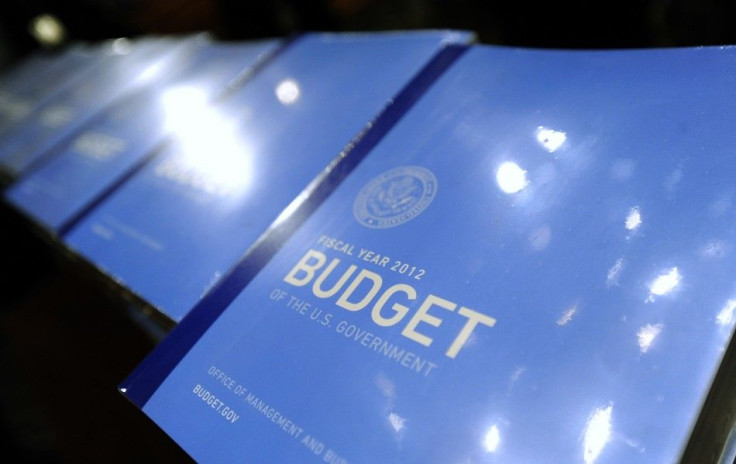U.S. Budget: Will Tea Party Threaten Another Government Shutdown in October?
ANALYSIS

Many, if not most, Americans are on their summer vaction, and it's just as well. There'll be time enough to get re-engaged with the nation's problems as autumn rolls in, and one problem that's likely to resurface is -- you guessed it -- another federal budget battle between Democrats and Republicans.
No, you haven't put too much suntan oil on (if you're reading this on your laptop at your summer beach house). The debt deal in early August that narrowly averted a devastating U.S. government default did not mark the end of the feud between the polarized two major political parties.
Citizens who don't follow goings-on in Washington and other casual observers probably concluded that the next checkpoint for how the two parties are getting along would be the meetings of Congress' bipartisan, 12-member super committee -- which has the charge of finding an additional $1.5 trillion in debt reduction, after Congress Republicans and President Barack Obama agreed on about $900 billion in cuts.
Oh, No -- Not Again?
The super committee meets this fall -- and with a Thanksgiving deadline, you may have thought the next flare-up would occur some time in late November.
Not quite.Those inside the beltway know that the next crisis could arrive as early as late September.
The reason? The U.S. government's new fiscal year, fiscal 2012, begins Oct. 1, and if Democrats and Republicans can't agree, there could be another threat to shut down the federal government.
Keep in mind that all the U.S. debt deal did was create a broad outline for fiscal policy. There still are many details to be worked out -- budget line times that could lead to substantial cuts or a small reduction in a department's/agency's budget -- and there's only three weeks between Sept. 7, when Congress returns from its recess, and the Oct. 1 deadline.
Of course, Congress could return early from their summer vacation (erm, recess) to get the budget work done. But if you believe they will, you'll also believe that the Houston Astros will win the National League pennant this year.
Tea Party: Will It Seek Common Ground?
And, of course House Republicans, currently dominated by the ultra-conservative Tea Party faction, could suddenly change their stance and choose to cooperate instead of deploying their latest tactic of going nuclear on every point of contention -- threatening to shut down the government (or, in the case of the debt deal, trigger a U.S. Government default) if they don't get their way.
In other words, dispassionate debate, a willingness to find common ground, and all members willing to sacrifice equally could lead to a fiscal 2012 federal budget based on a national consensus. And if party leaders are making progress on a new budget as Oct. 1 rolls around, they coould pass a continuing resolution, to fund the governemnt temporarily, until a deal is finalized.
That's the preferred, or normative scenario. Unfortunately, the reapolitick scenario is more likely, one in which each side -- and in particular the Tea Party-led House GOP caucus -- seeks a 100 percent win, or a win in which almost all of its demands are met. And why wouldn't the Tea Party continue its scorched-Earth stance? What's a government shutdown when you've already threatened to ruin the nation's credit rating?
Who's to blame for the above? To a considerable degree, it is the American people, which created a divided government when it re-elected the Republicans to majority-party status in the House in November 2010.
The public thinks by doing so it would provide another check and balance in the system, but political science research tells us -- and the history of U.S. party relations since 1992 demonstrates that it only leads to gridlock -- an inability to address issues and solve problems facing the nation because neither party has control of th egovernment. The nation would be better served by having one party in power, then evaluating that performace in an election.
Therefore, unless there's a sudden, enduring change in the mood in Washington, look for the lack of a federal budget and the threat of another government shutdown to start rattling the stock, bond, and currency markets -- in late September.
© Copyright IBTimes 2024. All rights reserved.





















